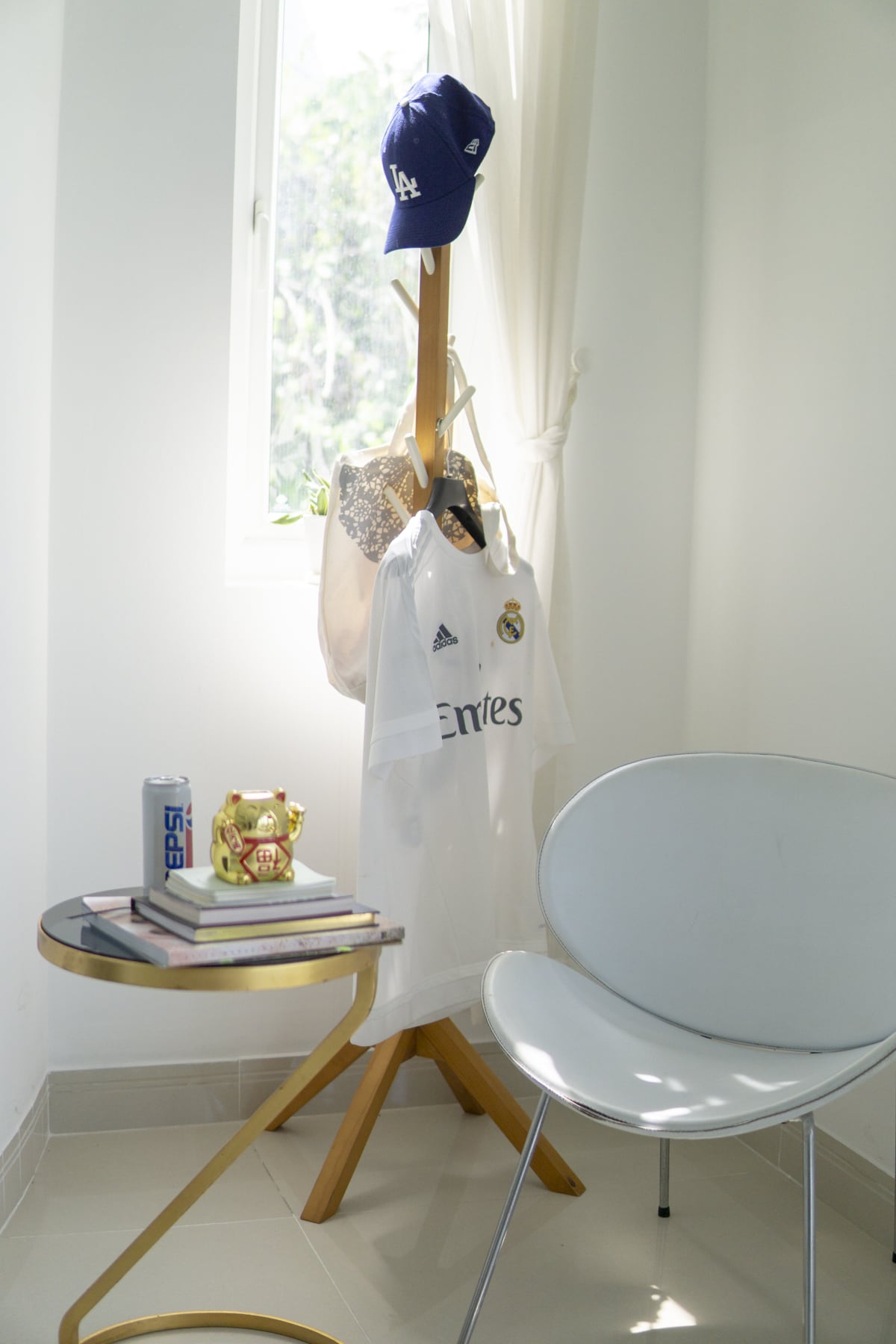“I love the purpose of creating new things that have never been done before and how that inspire others,” shares Alan Cerutti, co-founder and CEO of Happiness Saigon. He has been working in the advertising industry for 12 years and is passionate about incorporating creativity and innovation in both work and life.
Recently Pepsi launched the “Raise Your Voice” campaign, overseen by Alan’s team of creatives at Happiness Saigon. This campaign encourages youth to make their voices heard about the environment while also educating others about methods for proper waste disposal. We met with Alan to understand more about the “Raise Your Voice” campaign, his career in advertising as an account manager, and the importance of creativity.

How did you first get into this industry?
When I was three years old, I used to sit in the back of the car when my dad was driving and point out the car brands, “BMW, Audi, Mercedes…” I’ve always had this profound memory that brands were something I had an inkling for. I’m not sure what it really meant to me.
When I graduated, I didn’t know what to do next. I was a bit lost. I knew it was important to work, but I didn’t know exactly what I wanted to do. So when I was 19, I left Belgium for one year to go travel and work in Australia.
When I was in New Zealand, I was walking along a shopping street and there was a huge billboard of a life-sized Mini Cooper. I remember thinking, “Woah!” because of how much it struck me. My childhood love for brands came back to me. Then I called my parents immediately and said, “I know what I want to do next year. I want to study communication.” In Belgium, you cannot just say you want to be an account manager and jump right into it. You have to study communication first.
What personal strengths helped you succeed in your job? What were the weaknesses that you had to overcome?
A personal strength is passion. You need to want to make creative campaigns. You need to want to make ideas come to life. A skill you have to master is resilience. Resilience is patience, but also being persistent and achieving it. It’s about following your passion. You have to learn that when you fall on the ground, you have to get right back up.
A weakness I had to overcome was impatience. You need to be patient because it takes time to develop a good idea. Once you find that idea, it’s important that you let the idea mature. This is also something I apply to life. Now I have a little girl. She’s four weeks old and I need to be patient because being a dad is not something at which I’m an expert.

What do successful people in your field have in common?
I think they need to have a purpose. You have to be able to answer questions like, “Why are you selling products?” or “Why are you advertising?” For me, it’s to make creativity a tool that unlocks experiences and results. I love that. I love the purpose of creating new things that have never been done before and that inspire others. It’s a tough industry if you don’t feel passionate about creativity.
How do you keep yourself fresh after 12 years in advertising?
It’s important to get inspired. At Happiness we have a seminar where the entire agency takes a day off to talk about ideas with each other. Everyone is expected to share two or three ideas that they like and explain why. From there, we have conversations. It’s important that we don’t only look at ourselves, but that we also look at what’s out there. There’s so much good work out there that you’ll continuously get inspired.
It seems that most CEOs of advertising companies start out with an account management background as opposed to a creative background. Why do you think that is?
I think the reason why account management is an obvious and comfortable choice is because you’ll know how to manage clients. You’ll know how to run campaigns so that your business will grow. You’ll also know how to manage the finances and how to organize efforts.
I also think that will change. Creative people will become more and more inclined to be responsible for the creative agencies. The big firms are the ones putting these traditional processes in place because at the end of the day, for them, creativity is not the bottom line. It’s finances. They are big corporations. They need to pay people; there are shareholders; money needs to be sent back to headquarters. But as a creative agency like Happiness, we need to admit that our currency is creativity. I think that it’s very important that the leader of the company is obsessed with creativity and innovation — be it a CEO or a creative director.

What’s your advice for budding account managers?
Be obsessed. You need to wake up in the morning and think, “How can I put creativity on the table?” You have to evaluate how you can incorporate creativity in your company, in the conversations you have with clients, and even at home. Creativity is an exciting thing and if you’re only doing numbers or only talking about KPI’s as an account manager, you will burn out very, very quickly.
Which insights led to the creation of the Pepsi campaign?
One insight was that trash is a big issue here. There are now more bins around town, but people still have the habit of throwing a plastic out when they’re driving on their scooter or car. We wanted to find a very simple way to change the behavior of waste.
The second insight was that we felt that younger generations don’t have the right platform to express their views about sensitive topics. Whenever there is a big conversation about the future of the environment, decision-makers don’t really listen to the voices of the youth. By turning trash bins into voting opportunities, we tackle these two problems simultaneously.
When that idea came together, we realized, “Woah, this is really simple to execute.” It’s going to immediately create a behavior and hopefully a habit so that people throw their trash into a bin and not on the street.

What was Pepsi’s initial reaction to the idea?
It was one of the nicest reactions we’ve received in Vietnam. They basically started clapping. When a client starts clapping you know that you’ve done something well. This is a client that sees a lot of ideas on a daily basis. So when a client like that soaks it up and says, “Nothing to say, let’s go for it,” then that’s fantastic.
The beauty of the idea was that the brand is not encouraging a side. Rather, it’s just asking people, “Are you for or are you against this opinion?” The brand is not saying what is right or wrong. The brand is only creating a platform for people to express if it is right or wrong.
Where do you see this campaign going in the future?
Now that we’ve tested the idea on multiple locations and had so many results, it shows that the idea has legs and can run. We have to create new locations — however it is still the same idea but executed at a larger scale. That’s what we have to slowly start working towards. I’m hopeful that it can become a nationwide activity with fixed digital billboards and displays where the question changes every day.
Written by Agnes Tran
Related Content:
[Article] Ask a Senior: Huynh Vinh Son on Creative Struggles
[Article] Cultural Trends In Vietnam 2019: Seven Experts Share Their Opinions
